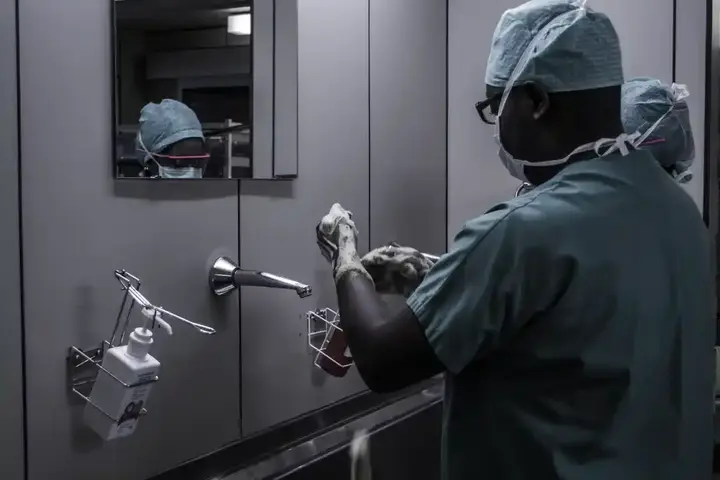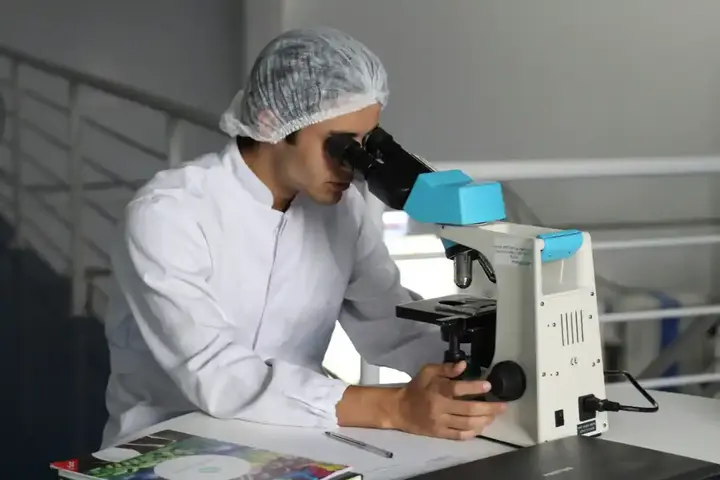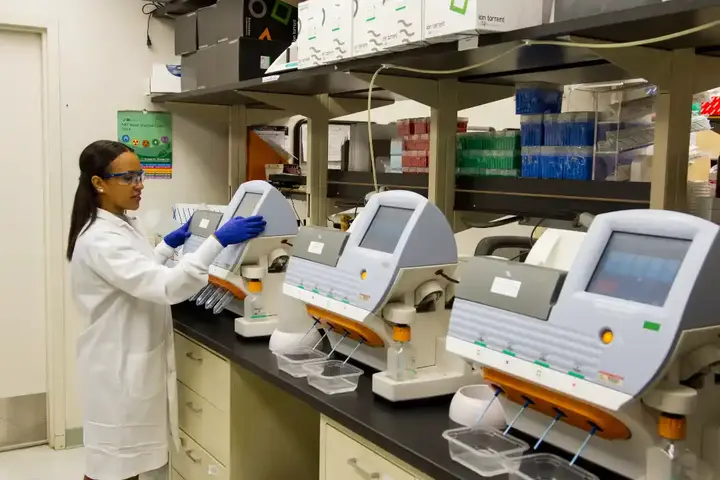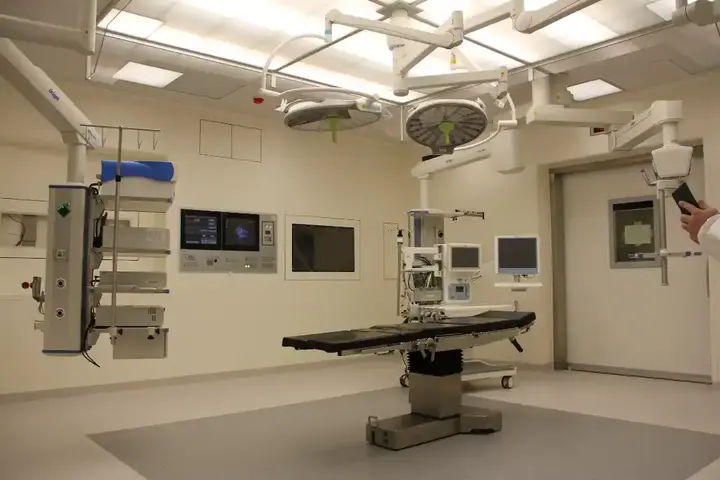Integrating AI with Biotechnology – Concerns and Advantages
The integration of artificial intelligence (AI) with biotechnology represents a tremendous revolution in various medical and scientific fields. It offers enormous potential to improve healthcare, develop new treatments, discover effective drugs, and better understand biological processes. This integration is also a promising area in general with huge potential to improve our lives.
Show key points
- Integrating artificial intelligence with biotechnology promises to revolutionize healthcare by enabling faster drug discovery and the development of personalized treatments.
- AI enhances diagnostic accuracy by analyzing complex medical data, such as X-rays and MRIs, more precisely than human experts.
- This convergence also supports advancements in sustainable agriculture, improving crop yields and ecological impact.
- ADVERTISEMENT
- Ethical concerns, including data privacy, algorithmic bias, and equitable access, must be addressed through responsible guidelines and regulations.
- AI applications in biotechnology are already a reality, with companies like DeepMind, Novartis, and Bayer employing these technologies for drug development and agriculture.
- The integration holds potential for broader scientific goals, such as brain simulation and disease modeling, contributing to future medical breakthroughs.
- Despite its promises, the integration risks job displacement and unequal access, demanding strategies to mitigate socioeconomic impacts.
It holds potential for improving agriculture and other related industries as well.
Although it offers enormous benefits, it also raises legitimate concerns. It is important to address these ethical and social concerns by developing strict ethical guidelines and ensuring that these technologies are used responsibly.
Recommend
Advantages of integrating AI with biotechnology

Accelerating drug discovery: AI can analyze vast amounts of biological and genetic data, helping to identify new therapeutic targets and develop more effective and efficient drugs. Design of customized drugs and treatments. This may speed up the development of medications, increase their effectiveness, and make them more suitable for individual patients. consequential;
Personal Healthcare: This integration can be used to analyze patients' medical data and provide more accurate diagnoses and customized treatment plans. It can also help monitor patients' health remotely and prevent complications. resulting in;
Improved diagnosis: Medical images, such as X-rays and MRIs, can be analyzed more accurately than humans, leading to more accurate and efficient diagnoses. Thus it can;
Development of personalized therapies: by analyzing patients' genetic data to develop personalized therapies that suit their individual needs.
Better understanding of biological processes: Vast amounts of biological data can be analyzed to better understand how organisms work, leading to new scientific discoveries.
Sustainable agriculture: It can be used to improve crop yields and resist diseases and pests. It can also help reduce the use of fertilizers and pesticides, which has a positive impact on the environment.
Design new materials: AI can be used to design new materials with specific properties, such as lightweight, strong and self-healing materials. These materials can have extensive applications in various industries.
Concerns about integrating AI with biotechnology

Privacy and ethics: The collection and analysis of biometric data raises concerns about privacy and ethics. Integrating AI with biotechnology requires access to vast amounts of data, including personal medical data. It is important to ensure that this data is collected, processed and used in an ethical manner that protects the privacy of individuals.
Bias: AI algorithms can lead to biases if not carefully designed and trained. For example, AI algorithms used in medical diagnosis may lead to bias against certain populations.
Safety and security: It is important to ensure the safety and security of artificial intelligence systems used in biotechnology. These systems must be rigorously tested to prevent any potential risks.
Job loss: Automating tasks currently performed by humans may lead to job losses. It is important to develop strategies to mitigate the impact on affected workers.
Access and cost: AI technologies may not be available to everyone, which could exacerbate healthcare inequalities.
Does this merger actually exist?

Yes, and several companies have stated that they are already using these modern technologies, for example:
Drug discovery: DeepMind used artificial intelligence to identify a new combination of an antibiotic that is effective against antibiotic-resistant bacteria.
Cell therapy: Novartis has developed AI-based technology to select the most suitable embryonic stem cells to treat each patient.
Agriculture: Bayer uses artificial intelligence to analyze satellite imagery to identify drought or pest areas, and make recommendations to farmers on how to improve crop yields.
Ambitions and Objectives

With the curvature of science and its accompanying technologies, scientists hope to introduce specialized future models that will contribute to the enhancement and prosperity of human life in general.
Brain simulation: AI can create complex computer models of the human brain to understand how it works and develop new treatments, especially for neurological diseases.
Modeling the spread of diseases: Science may be able to model the spread of diseases and develop better control strategies. Thus, epidemics can be eradicated from their beginnings.
Biological design: The possibility of designing new biological materials and systems with specific properties.
![]()
The biggest mystery in geology - when plate tectonics began to reshape the Earth
On February 6, 2023, a powerful earthquake struck the eastern Mediterranean, shifting the Anatolian Peninsula by 11 meters and killing nearly 60,000 people. This disaster highlights how tectonic plate movements reshape Earth's surface and cause devastating quakes by releasing built-up pressure at plate boundaries. more- ADVERTISEMENT
![]()
Scientists wonder if the universe looks like a donut cake
Scientists are exploring the universe’s shape and structure, searching for signs of cosmic loops and mirrored galaxies. Using improved CMB maps and powerful telescopes, they aim to uncover if the universe is finite—and perhaps one day map it all, like a cosmic version of Google Earth. more- ADVERTISEMENT
![]()
The Sahara Dilemma: Are Deserts Vital to the Balance of Our Planet?
Deserts may seem lifeless and harsh, but they’re vital to our planet. They store carbon, support unique species, and even help nourish the Amazon Rainforest. Despite their importance, human activities threaten these fragile ecosystems. So yes—deserts matter, and we need them more than we think. more- ADVERTISEMENT
![]()
Habits of remarkably calm people
Remarkably calm people aren't born that way—they build habits like mindfulness, deep breathing, and regular exercise to stay composed. They also focus on positive thinking, good sleep, and managing time well. These simple yet powerful habits help them stay cool even when life gets stressful. more- ADVERTISEMENT
![]()
Nightlife and cafes in Sharm El Sheikh
Sharm El Sheikh transforms after sunset into a vibrant nightlife hub. From lively clubs in Naama Bay to traditional vibes in the Old Market, there's something for everyone. Enjoy beach parties, fine dining, and local culture, all while soaking in the electric energy of this Red Sea gem. more- ADVERTISEMENT
![]()
Real books prominent in self-development - including by an Arab specialist
Tired of theory-heavy self-help books? Try these three practical ones instead: Emma Bauer’s guide builds strong human connections with real-life tips, Mohamed Taha’s poetic book inspires change with depth and emotion, and Stéphane Garnier’s fun take shows how cat behavior can teach us joy, confidence, and better relationships. more- ADVERTISEMENT
![]()
The mysterious abandonment of Cahokia: The Lost City of Ancient America
Once a bustling hub near the Mississippi River, Cahokia was North America's largest pre-Columbian city, known for its massive Monks Mound and smart urban planning. By the 14th century, it was mysteriously abandoned, leaving behind ruins that still intrigue archaeologists and visitors today. more- ADVERTISEMENT
![]()
The dark side of remote work that no one talks about: it's not just about wearing sweatpants and flexibility
Remote work may seem dreamy, but loneliness, blurred boundaries, and snack-fueled sofa days can take a toll. You might miss office perks, relationships, and even your boss forgetting you exist. It’s not all bad—but it’s not all good either. Just remember to move, unplug, and please, wear pants on video calls. more- ADVERTISEMENT
![]()
The strange long history of Teflon: the non-subversible product that nothing sticks to
The Long, Strange History of Teflon: The Indestructible Product Nothing Seems to Stick To more- ADVERTISEMENT
![]()
Clothing Trading - Hidden Tetanus Discovery
Clothing trade can be highly profitable when you understand fashion trends, know your target customers, and offer quality products at affordable prices. Choosing the right type—like children’s or women’s wear—and selecting a smart location or online platform can boost success. Marketing and customer service also play big roles. more- ADVERTISEMENT





















